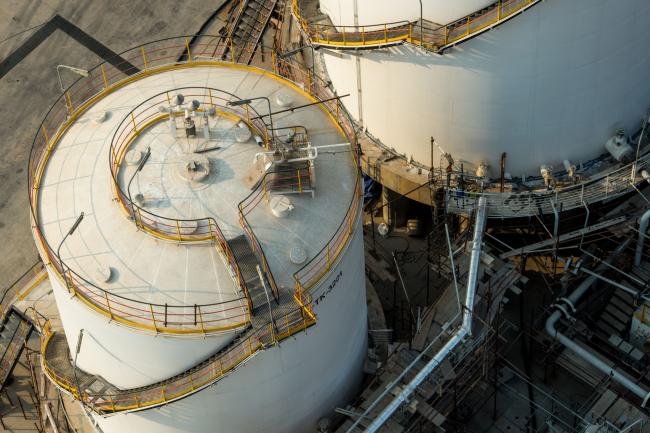(Bloomberg) -- Oil resumed gains as traders assessed the Middle East situation with the U.S. planning to send extra troops to Saudi Arabia, while doubts remained over how quickly the kingdom can restore lost output.
Brent crude increased 0.5% after its biggest weekly advance since January. Iran’s Foreign Minister Mohammad Javad Zarif refused to rule out war following plans for increased American troops and weapons in Saudi Arabia following attacks this month, he said in an interview with CBS. While the Saudis reiterated they will bring back all the lost production by the end of this month, consultants Rystad Energy and FGE are skeptical, while the Wall Street Journal reported repairs at damaged plants may take many months.
Saudi Arabia has said Iran “unquestionably sponsored” the attacks and the U.K. said the Islamic Republic was “very likely” behind the strikes which knocked out about 5% of global supply and led to the biggest price spike on record. The U.S. on Friday slapped terror-related sanctions on Iran’s central bank. The Persian Gulf nation has denied it played a role.
“Repairs at Saudi processing plants will take longer than expected,” said Ole Hansen, head of commodities strategy at Saxo Bank A/S in Copenhagen. “Increased U.S. sanctions against Iran and deployment of a few troops to Saudi Arabia have further raised the rhetoric on the Iranian side.”
See also: Saudi Aramco Reveals Scale of Damage From Oil Attacks
Brent crude for November rose 29 cents to $64.57 a barrel on the ICE (NYSE:ICE) Futures Europe Exchange as of 10:02 a.m. in London. The global benchmark crude traded at a $6.21 premium to West Texas Intermediate.
WTI for November delivery gained 31 cents, or 0.5%, to $58.40 a barrel on the New York Mercantile Exchange, after climbing 5.9% last week.
The attacks set off an unprecedented flurry of activity in the oil futures markets last week, with both Brent and WTI contracts setting records in weekly aggregate volume with more than 17.2 million contracts traded.
Iran’s response has been a mix of defiance and an attempt to ease the tension. President Hassan Rouhani said on Sunday the Persian Gulf nation would lay out a peace initiative for the region at the United Nations General Assembly that would involve a coalition of regional and foreign countries, while Zarif said “I’m not confident that we can avoid a war.”
Read, The World’s Oil Security Blanket Has Been Torched: Julian Lee
